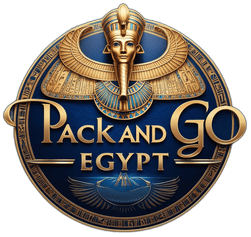Your Guide to the Different Types of Tourism in Egypt
Cultural Tourism
Cultural tourism is Egypt’s most important attraction, thanks to its world-famous ancient heritage. Through this type of travel, visitors can explore the history, traditions, and lifestyle of the ancient Egyptians. With archaeological sites dating back more than 5,000 years, Egypt continues to fascinate travelers from around the globe.
Cairo, the capital, is one of the most remarkable ancient cities. Here, tourists can admire the legendary Pyramids of Giza—built as the tombs of the pharaohs Khufu, Khafre, and Menkaure. This complex is among the world’s most iconic archaeological sites. The Great Pyramid of Khufu, the last surviving Wonder of the Ancient World, is a highlight for anyone visiting Egypt.
Nearby, the Grand Egyptian Museum houses tens of thousands of priceless artifacts. Within the same area, visitors can marvel at the majestic Sphinx, explore the Valley Temple, and learn about the fascinating mummification process of the ancients.
Beyond Giza, travelers can visit the Step Pyramid of Saqqara—the first pyramid ever built in Egypt—and the historic city of Memphis. A trip to Dahshur reveals more wonders, such as the Bent Pyramid and the Red Pyramid.
In Luxor, history comes to life with awe-inspiring temples and tombs. Highlights include Karnak Temple, Luxor Temple, the Mortuary Temple of Hatshepsut, the Valley of the Kings, and the Colossi of Memnon.
Further south, Aswan offers breathtaking sites like the High Dam, Philae Temple, and Abu Simbel. Visitors can also experience authentic Nubian culture in the surrounding villages.
On the Mediterranean coast, Alexandria showcases unique landmarks such as the Citadel of Qaitbay, Pompey’s Pillar, the Catacombs of Kom El Shoqafa, and the modern Library of Alexandria.
Religious Tourism
Egypt has long been a land where different faiths met and thrived. This diversity makes it an ideal destination for religious tourism, with significant Islamic, Christian, and Jewish sites.
Islamic Landmarks:
Many rulers of the Islamic Empire left behind extraordinary mosques and citadels, including:
- Amr Ibn Al-Aas Mosque
- Ibn Tulun-moskén
- Sultan Hassan Moskén
- Mohamed Ali-moskén
- Al-Hakim Mosque
- Sayyida Zeinab Mosque
Famous citadels such as the Salah El-Din Citadel in Cairo and the Citadel of Qaitbay in Alexandria also reflect this era’s heritage.
Coptic Christian Landmarks:
Christianity has deep roots in Egypt, and travelers can visit sites such as:
- The Hanging Church
- Abu Serga-kyrkan
- Church of St. Mary
- Monastery of St. Catherine in Sinai
- Church of Saint Menas
Jewish Landmarks:
Jewish heritage is also preserved in sites like:
- Ben Ezra-synagogan
- Mount Sinai
- Haret El Yahood (Jewish Alley) in Cairo
Leisure Tourism
For relaxation, Egypt offers stunning coastlines along the Red Sea, the Mediterranean, the Gulf of Suez, and the Gulf of Aqaba. Popular resorts include Hurghada, Sharm El Sheikh, Marsa Alam, El Gouna, Dahab, and Ain Sokhna.
Here, visitors can enjoy:
- Snorkeling and scuba diving in crystal-clear waters
- Desert safaris on quad bikes
- Beach resorts and luxury hotels for complete relaxation
Medical Tourism
Egypt is also known for its natural healing resources—therapeutic sands, mineral springs, and unique climatic conditions. These have been used for centuries to treat various ailments, including skin disorders, joint pain, and digestive issues.
Top destinations for medical tourism include:
- Bahariya Oasis: Famous for hot springs.
- Beaulac Wells: Rich in minerals beneficial for rheumatism and joint pain.
- Nasser Wells: Natural pools for treating skin and digestive problems.
- Farafra Oasis: Known for its herbs used in traditional medicine.
- Safaga: Famous for its black sand and mineral-rich waters that help with psoriasis and other conditions.
Whether you’re drawn by history, spirituality, relaxation, or healing, Egypt offers a unique mix of tourism experiences that few other destinations in the world can match.





